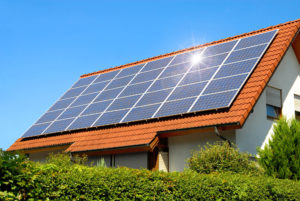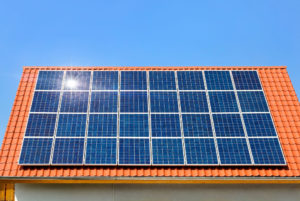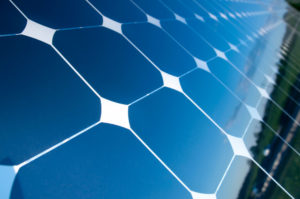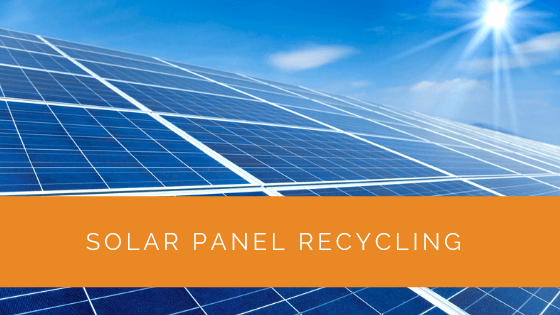The energy sector has significantly transformed over the last few years, with a clear move towards cleaner energy sources. However, not everything that appears to be sustainable remains for time immemorial.
This is one of the main concerns regarding using photovoltaic (PV) solar panels for solar power generation. Even though it is a long-term, renewable energy source that relies solely on solar radiation to generate electricity, they have a fixed shelf life.
But, the good news is that PV solar panels, even after being out of use, may still be of help. Thus, we should ensure that no functional solar panels are in the trash. Please don’t throw away your old solar panels; recycle them instead!
In this article, we will talk about how we can recycle old solar panels.
Contents
- 1 Key Takeaways
- 2 Is it Possible to Recycle Solar Panels?
- 3 How Long do Solar Panels Last?
- 4 Getting Rid of Solar Panels
- 5 Recycling Process of Solar Panels
- 6 Advantages of Recycling Solar Panels
- 7 What Can I Do to Extend the Life of My Solar Panels?
- 8 Solar Panels Efficiency Improvement Techniques
- 9 Case Study: Eco-Friendly Solar Panel Recycling
- 10 Expert Insights From Our Solar Panel Installers About Solar Panel Recycling
- 11 Discover the Power of Solar with Solar Panels Network
- 12 Final Words
Key Takeaways
- Solar panels, primarily made of recyclable materials like aluminium, glass, and silicon, can be recycled, contributing to sustainable energy practices.
- Solar panels have a longer lifespan than officially claimed, with a 30-year expectancy, and their efficiency remains relatively high even after 25 years.
- Recycling solar panels is environmentally beneficial, conserving resources, saving rare elements, and generating employment opportunities in the growing recycling industry.
Is it Possible to Recycle Solar Panels?
Yes, it is! Solar panels can be recycled. They’re made almost entirely of recyclable materials like aluminium, glass, and silicon. In other words, your green energy equipment will continue to be green even after it has finished its work.
People already know how to dismantle solar panels and recycle their parts; the only thing left is to expand the sector in preparation for the recycling process of solar panels. In the UK, it is illegal to dispose of solar panel waste in a landfill.
Assuming all goes as planned, a new generation of solar panels can be constructed from the scraps of their predecessors’ parts by the late 2030s. Exciting, right?
How Long do Solar Panels Last?
Studies show that solar panels have a 30-year life expectancy before they need to be decommissioned.
The power capacity of solar panels may decline by 20% during their lifespan. There is a 10% loss in their efficiency in the first 10-12 years of use and a 20% decrease in efficiency at the 25-year mark. The majority of manufacturers back up these claims with factual data.
However, research reveals that after 25 years, the efficiency of PV only decreases by 6-8%. As a result, the useful life of solar panels may be substantially greater than officially claimed. High-quality PV panels have a life expectancy of 30 to 40 years and can continue to work even after that, but with reduced efficiency.
This goes to show that solar panels are pretty durable. They’re expensive, yes. But they are an investment for the long haul.

Getting Rid of Solar Panels
From a legal standpoint, PV panel trash is considered general waste. They are not considered e-waste under the EU’s Waste Electrical and Electronic Equipment Directive (WEEE). This directive and other legislative frameworks thus regulate their waste management.
Due to regulatory obligations and strict recycling norms, solar panel manufacturers must ensure that their products do not become a burden on the environment. Thus, new methods for recycling solar panels have begun to emerge. Some photovoltaic manufacturers have even teamed up with government agencies to develop solutions to the problem of solar waste.
Recycling Process of Solar Panels
Numerous technologies have been developed due to research on recycling solar panels. Some can recycle as much as 96% of the waste, but the goal is to improve efficiency.
The solar power business is dominated by two panels: silicon-based (which accounts for 92% of the market) and thin-film (7%). The recycling procedure differs for each.
1. Silicon-Based Solar Panels
The process of recycling silicon-based solar panels starts with material separation. Solar panels are made up of several types of materials. Thus, it is essential to separate them.
The panel is dismantled, and the aluminium frame and glass enclosure are removed. All aluminium and 95% of the glass from the project is recycled.
After that, we move to cell modules. At scorching 500°C, tiny plastic components are vaporised from the cell modules. 80% of cell modules are reusable.
The final product is silicon wafers. These are removed by etching and melted down as slabs. 85% of the silicon is recycled to make new solar panels.
2. Thin-Film Solar Cells
This method is a little more gruesome than the last.
A shredder and a hammermill are used to break down thin-film panels. Each panel is trimmed down to 4-5mm thick sections. Here, unlike silicon-based panels, a mixture of solid and liquid components is separated with the help of a massive rotating screw.
Acid and peroxide remove the semiconductor (usually Cadmium telluride, CdTe) material from the glass, which is washed with water. About 95% of the semiconductor material and 90% of the glass is recycled.
Note that recycling thin-film solar panels save more semiconductor material but less glass. Since there are concerns about cadmium’s environmental toxicity, silicon-based solar panels are preferred for recycling.

Advantages of Recycling Solar Panels
Solar panel recycling is beneficial for a variety of reasons. Some of these include:
- Environmental benefits: Reusing existing materials reduces the need for new ones, whereas burying waste is harmful.
- Can Save Some of the Rarest Elements: Gallium and indium are used in solar panels from the Earth’s limited resources. It won’t be long before we’re out of gallium and indium if we don’t reuse them.
- Cost-effective: According to IRENA, around 60 million new solar panels can be purchased with the raw materials recovered from used solar panels by 2030.
- Can generate Employment: The solar panel recycling business has the potential to become an established industry globally. Once the project is up and running, it will generate massive employment worldwide.
What Can I Do to Extend the Life of My Solar Panels?
Solar panels, all in all, are strong and long-lasting. They only need to be cleaned and maintained regularly. However, the dust and debris that collects on the panels can reduce their efficiency. Thus, a simple cleaning once in a while can help maintain its performance over time.
The best way to clean your solar panels is by rubbing their surface using a dry or damp cloth. You can also wash them with room-temperature water. However, avoid spraying them with cold water while they are still hot to prevent them from cracking!
A rainy day is better for cleaning because it’s nature’s cleaning crew! You can even hire a professional solar panel cleaner if your panels are too high to reach or want to outsource the work.

Solar Panels Efficiency Improvement Techniques
We’re always finding new methods to improve the efficiency and effectiveness of solar panels. Solar panels still aren’t as efficient as we’d like them to be, but research will help make them more effective.
Here are a few ways you can make your solar panel more efficient:
1. Select the Right Panel
The materials used to make your solar panels may impact the efficiency of the solar array.
- Monocrystalline panels are the most efficient solar panels but are also very costly.
- Polycrystalline panels fall midway in terms of performance and cost. They are lighter and have less production waste than their monocrystalline counterparts. They are also better for the environment.
- The least efficient but also the least expensive solar cell technology is thin film. It is also the most promising for the future since researchers and developers are working nonstop to better the technology.
2. Maintenance
Solar panels, on the whole, don’t require a lot of upkeep and don’t need anything else to keep working. They do, however, accumulate dust over time. It necessitates periodic cleaning to keep them operating at peak efficiency.
If the solar panels become dusty or unclean, use warm water and a soft sponge to clean them.
3. Avoid Shadows or Obstructions
Your solar panels will suffer greatly if they are placed in the shadow. Ensure there are no obstructions before having them placed to utilise maximum sunlight.
Each panel blocked by shadow might result in a loss of up to half of the solar effectiveness.
4. Using Solar Concentrators
A solar concentrator can help focus the sun’s light into smaller regions. By using this technique, you can make your solar panels more efficient, resulting in more energy output. Solar concentrators can also help lower the utility costs of solar panels.
Case Study: Eco-Friendly Solar Panel Recycling
Background
At Solar Panels Network, we are dedicated to not only providing high-quality renewable energy solutions but also ensuring that our practices are environmentally responsible. A crucial aspect of this commitment involves the recycling of decommissioned solar panels. By focusing on eco-friendly disposal and material recovery, we aim to reduce waste and promote sustainability in the solar energy industry.
Project Overview
The primary objective was to manage the lifecycle of solar panels in an eco-friendly manner. This includes ensuring that panels are disposed of properly and recycled wherever possible, thereby minimizing the environmental impact of our operations.
Implementation
- Environmentally Responsible Disposal: We ensure that all decommissioned solar panels are processed in accordance with the highest environmental standards. Panels are sent to certified recycling facilities where they are dismantled and processed to recover valuable materials.
- Material Recovery and Reuse: The recycling process focuses on reclaiming key components such as silicon, glass, and metals. This not only prevents these materials from ending up in landfills but also allows them to be reused in the production of new solar panels and other products.
- Commitment to Sustainable Practices: Our approach includes strict adherence to environmental regulations and best practices in recycling. We continuously seek to improve our processes and ensure that our operations have the least possible environmental impact.
Results
- Waste Reduction: By recycling decommissioned panels, we significantly reduce the amount of waste generated by our operations. This initiative helps to conserve natural resources and decrease the environmental footprint associated with producing new materials.
- Resource Conservation: The materials recovered from the recycling process, such as high-purity silicon and metals, are reused, contributing to resource conservation and reducing the demand for new raw materials.
- Environmental Stewardship: Our commitment to recycling and eco-friendly practices underscores our role as a responsible participant in the renewable energy sector. It aligns with our broader mission to promote sustainable energy solutions.
Summary
Solar Panels Network’s dedication to eco-friendly recycling reflects our commitment to sustainability and responsible resource management. By ensuring that decommissioned solar panels are properly recycled, we not only prevent waste but also contribute to a circular economy. This approach supports our vision of a greener future and demonstrates our ongoing commitment to environmental stewardship.
Expert Insights From Our Solar Panel Installers About Solar Panel Recycling
Recycling solar panels is crucial for maintaining the sustainability of solar energy. The panels contain valuable materials like silicon and aluminium, which can be reused to manufacture new panels, reducing the need for raw materials.
Solar Recycling Specialist
Ensuring proper disposal and recycling of solar panels helps prevent harmful substances, like cadmium from thin-film panels, from polluting the environment. It’s an essential step in the lifecycle of solar technology.
Environmental Engineer
Investing in solar panel recycling infrastructure not only benefits the environment but also creates job opportunities and contributes to the circular economy, making it a win-win for everyone.
Renewable Energy Consultant
Discover the Power of Solar with Solar Panels Network
Are you navigating the world of solar installations? Look no further than Solar Panels Network, the UK’s trusted partner in harnessing the sun’s potential. Our dedication goes beyond just installations; we’re on a mission to transform how homeowners and businesses across the UK perceive and utilise energy. By choosing us, you’re reducing your carbon footprint and making a smart financial move that promises savings for years ahead. Contact us today and embark on your solar journey.
Final Words
Global sales of solar energy products have increased significantly. As the number of solar panels sold and installed worldwide rises yearly, more solar panels wind up in the trash stream.
If you no longer need your installed solar panels, consider recycling them rather than adding them to the overloaded landfills. Recycling them at the end of their life is the most environmentally and socially responsible option. Also, it is the most efficient use of resources and money.
The recycled materials can be used to manufacture new solar panels or sold on global commodities markets, boosting the availability of raw materials.
About the Author
Solar Panels Network stands at the forefront of solar energy solutions, driven by a team of seasoned solar engineers and energy consultants. With over decades of experience in delivering high-quality solar installations and maintenance, we are committed to promoting sustainable energy through customer-centric, tailored solutions. Our articles reflect this commitment, crafted collaboratively by experts to provide accurate, up-to-date insights into solar technology, ensuring our readers are well-informed and empowered in their solar energy decisions.

